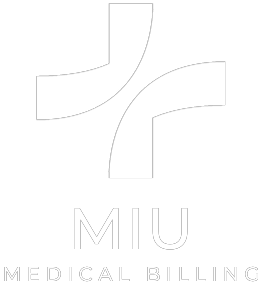Marketing activities have become complex, and choosing the appropriate strategy is very important for the business’s success in the present era. The battle between digital and traditional marketing persists with technology and changing consumer habits. As for the marketing communication strategy at MIU, we comprehend how significant it is to facilitate the best possible marketing strategy. Here are some top differences between digital and traditional marketing, enabling you to decide which plan suits your needs and target market.
The Foundations of Digital Marketing and Traditional Marketing
Interactive and non-interactive marketing are two techniques for targeting the right customer. Digital marketing refers to marketing communication activities that utilize the internet and electronic devices, including social media, emails, and search engine marketing. The ‘traditional’ approach means conventional advertising in newspapers, big hoardings, and media commercials. It is essential that one can differentiate the basics of digital marketing from traditional marketing so that he or she can make the right decisions on the best marketing strategy to develop.
Reach and Targeting: Precision vs. Broad Appeal
Yet, one of the most fundamental contrasts between digital marketing and conventional marketing deals with audience targeting. Digital marketing is most effective when it aims at specific groups in the population because targeting can be very accurate, based, for instance, on the people’s behavior, interests, geographical location, etc. In comparison, traditional marketing tends to attract more people and a potentially larger pool of clients; however, the target is comprehensive. Concerning the digital marketing vs. traditional marketing debate, it is essential to determine your target and determine if it is more suitable to have a niche or broad approach.
Cost-Effectiveness and ROI
There is, therefore, a significant interplay between the available budget and the specific marketing strategy to be chosen between digital and traditional marketing. Digital marketing is usually less expensive than traditional marketing as it allows for starting on a relatively low budget and expanding gradually. There is often a more considerable cash outlay for the more conventional techniques, but the rewards are higher regarding brand awareness. While comparing digital marketing and traditional marketing, it is necessary to consider the budget that you are ready to invest and the ROI for each method.
Measurability and Analytics
Yet another advantage of digital marketing over traditional marketing is the possibility to measure the performance of campaigns. Social media, especially, is immediate and comes with robust data where one can see what is happening, who is converting, and the overall return on investment. Most conventional promotional techniques use approximations and polls to assess the merits. The tangibility of online advertising could also be seen as a disadvantage if businesses emphasize analytics, and therefore, quantifiable results could be preferred over qualitative results of traditional marketing techniques.
Engagement and Interactivity
Thus, Digital and traditional marketing have a marked difference in their ability and capacity to engage and interact with customers. Digital platforms create the opportunity for direct communication through Social media and Chatbots or customized content. On the other hand, traditional marketing can be characterized by an information piece, giving a marketer very little room to interact directly with the customers. When deciding between the two, digital marketing is noteworthy for the ability to develop continually interactive cooperation with the customer.
Flexibility and Adaptability
Digital marketing can be relatively more fluid in terms of the methodologies it implies as compared to the rather more rigid methods of traditional marketing. If a particular message is not well received or the target audience is not responding well to a campaign, an e-campaign can easily be adjusted. Once created and placed in the market, traditional marketing media is not amenable to modification. Such a disparity in their flexibility as the marketing approaches is especially significant for companies that operate in volatile or emerging industries.
Brand Trust and Credibility
It is crucial to note that both digital and conventional marketing strategies go a long way in creating brand trust and credibility, each in its approach. Many traditional marketing techniques rely on transforming the word-of-mouth we get from recognized media sources into a point of legitimacy for new brands. Digital marketing ensures that customers trust the business by regularly interacting with them online and allowing others to give their opinions on the product or service. As you think about digital marketing and marketing in the traditional sense, think about what type of marketing suits your brand’s image and what image you want your target market to embrace.
Conclusion: Crafting Your Optimal Marketing Mix
For this reason, digital marketing and traditional marketing do not necessarily have to be a fixed pair of options. As for most businesses, there is often efficient usage of both new digital marketing and older traditional marketing to create an extensive strategy. Concerning the marketing strategy, it is wise to consider the goals of your business, the nature and needs of the target audience, the available budget, and the type of industry to come up with the best blend of digital and offline marketing. Digitization of marketing has seen the integration of digital and traditional marketing strategies, creating a broad-spectrum approach to marketing a product or service.
Still, it is crucial to understand that the framework of marketing is dynamic, and it is essential to update the knowledge of consumer marketing in digital and non-digital environments. It is true to say that, no matter where you stand on the relative merits of digital and traditional advertising – precision, measurability, and dynamism on the one hand, or mass reach, physical, and responsiveness on the other, the crucial thing is to be able to adapt as the business environment changes with growth primary business and market condition.




